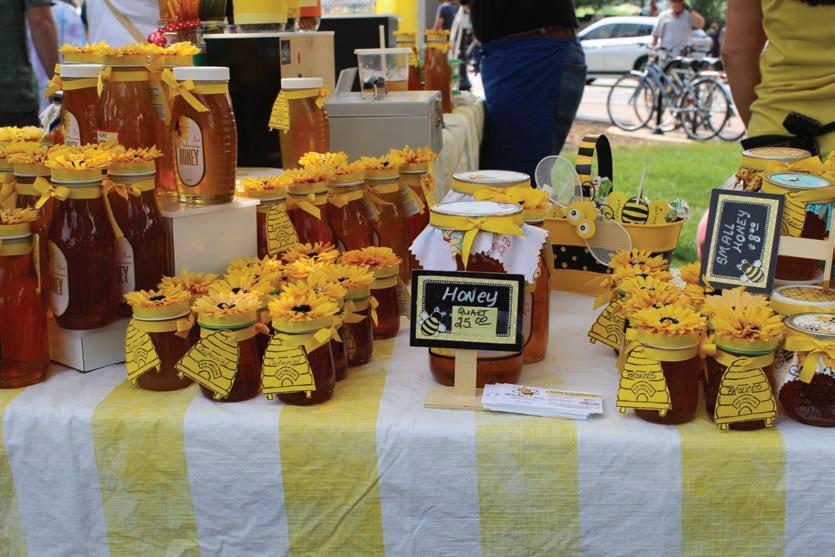
1 minute read
16th Annual Honey Festival comes to O’Brien Park in Parker
BY HALEY LENA HLENA@COLORADOCOMMUNITYMEDIA.COM
Colorado is home to 946 native bee species and this year’s Honey Festival is aimed at raising awareness and educating the public of their importance and their tedious process through fun interactive activities and games.
With nearly 3,000 people attending annually, the event is being held at O’Brien Park in Downtown Parker from 8 a.m. to 1 p.m. on Sunday Aug. 6. Admission is free but guests are encouraged to register on the Parker Arts website.
e event will also include a kids corner, performances and artistic displays.
“It’s a great event that brings vendors, the community and brings honeybee beekeepers in,” said Carrie Glassburn, cultural director of Parker Arts.
Honeybees are more valuable than just producing honey and beeswax. ey are important pollinators as they play a signi cant role in the agricultural system as well as animal and human life too.
According to e Bee Conservancy - a nonpro t organization - bees have been dying at an unprecedented rate.
A report from the United States Department of Agriculture states between January and March of 2021, the number 464,640 honeybee colonies were lost , the highest number lost of any quarter surveyed that year. e Bee Conservancy states habitat loss, climate change, chemical pesticides, invasive plant species and disease and parasites are the primary threats to pollinators. rough observation hives, books for kids and a variety of displays, local beekeepers and beekeeping organizations will be showing families how beehives work and what the community can do to help the state’s native bees.

A colony is a hive that contains a queen honeybee and her worker bees.
Other pollinators include butterflies, wasps, beetles and hummingbirds, however, bees pollinate about one-third of our food. Without the honeybee, food like almonds, apples and onions would be lost.
In addition, honeybees contribute over $15 billion to the value of U.S. crop production, according to The Bee Conservancy.
Just like other animals and humans, pollinators also need a habitat in order to thrive. e Colorado State University Extension program provides ways to design a pollinator habitat along with a list of plant forage based on season.
“It’s great to see families that are learning together,” said Glassburn.

From Highlands Ranch Honey to Homestead in the Hood to Natural Grocers, guests will have the chance to purchase di erent types of honey, beeswax, candles and more from the
20 plus vendors.
Each vendor will have an interactive educational experience that focuses on pollinators such as learning how to make a bee hotel, spot the queen bee game and learn from master gardeners about landscapes and upcycling.









